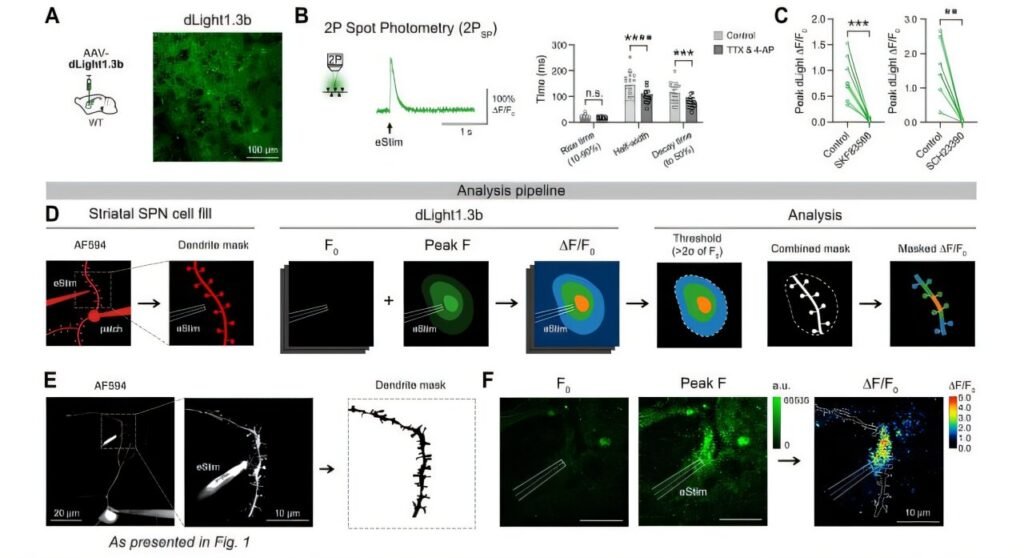A groundbreaking study from the University of Colorado Anschutz Medical Campus has revolutionized our understanding of dopamine, a crucial neurotransmitter in the brain. Contrary to previous beliefs, dopamine does not act as a broad signal, but rather with pinpoint precision, delivering localized messages to specific nerve cell branches at precise moments. This discovery has significant implications for the treatment of dopamine-related disorders and represents a major step forward in precision-based neuroscience and medicine.
Traditionally, dopamine was thought to flood large areas of the brain, influencing behavior in a generalized manner. However, recent research published in Science has revealed a more intricate system at play. By utilizing advanced microscopy techniques, researchers discovered that dopamine is released in concentrated hotspots, allowing for rapid, targeted responses in nearby brain cells. Simultaneously, broader signals activate slower, more widespread effects, enabling dopamine to finely regulate individual neural connections while coordinating complex behaviors like movement, decision-making, and learning.
Lead author Christopher Ford, Ph.D., emphasized the complexity of dopamine signaling and transmission in the brain. He noted that while dopamine is involved in various behaviors, this study provides a foundational framework for understanding how dopamine regulates these diverse functions. The findings challenge traditional approaches to dopamine-related disorders, such as Parkinson’s disease, addiction, schizophrenia, ADHD, and depression, which primarily focus on restoring overall dopamine levels.
The study suggests that the precision of dopamine signaling may be just as critical as dopamine levels in addressing these disorders. Ford highlighted the need for further research to elucidate how changes in dopamine signaling contribute to neurological and psychiatric diseases. By gaining a deeper understanding of these mechanisms, researchers aim to develop more effective treatments for conditions characterized by dopamine dysfunction.
The research, published in Science, marks a significant advancement in the field of neuroscience and underscores the importance of precision medicine in addressing complex brain disorders. By unraveling the intricacies of dopamine signaling, scientists are paving the way for innovative therapies that target specific aspects of neurotransmission, offering hope for individuals affected by dopamine-related conditions.
For more information on this groundbreaking research, refer to the study “Discrete spatiotemporal encoding of striatal dopamine transmission” published in Science. DOI: 10.1126/science.adp9833. This study was conducted at the CU Anschutz Medical Campus, a leading institution in neuroscience research.
Source:
CU Anschutz Medical Campus
Website: http://www.ucdenver.edu/anschutz/


